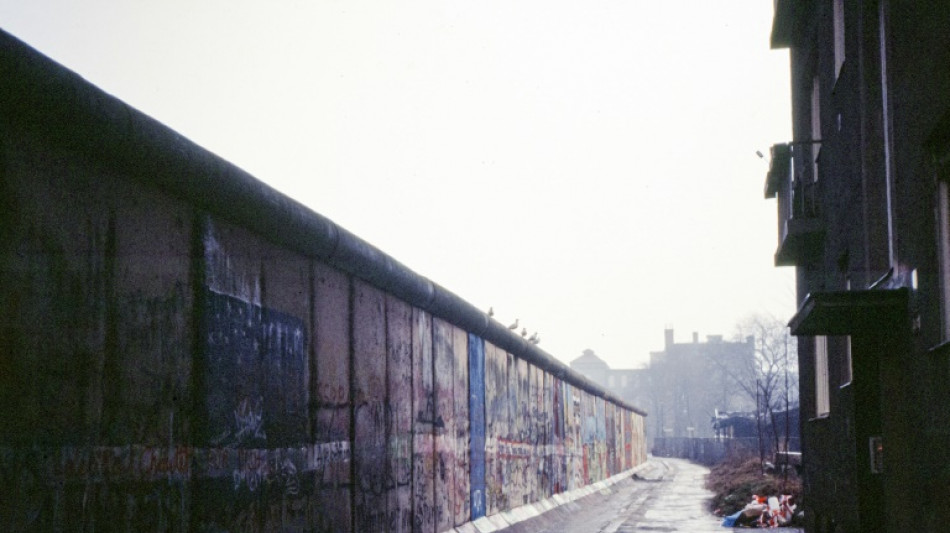
-
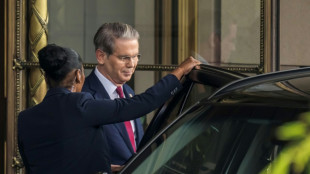 US-China talks resume as Trump hails 'total reset' in trade relations
US-China talks resume as Trump hails 'total reset' in trade relations
-
Ukraine ready for Russia truce talks, Zelensky says
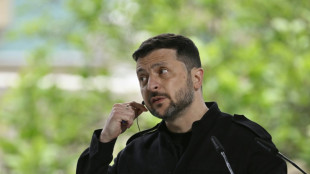
-
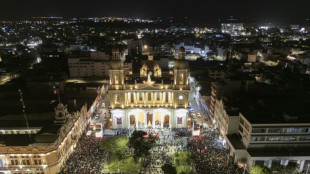 Jubilant Peruvians celebrate new pope at mass in adoptive city
Jubilant Peruvians celebrate new pope at mass in adoptive city
-
Scottish refinery closure spells trouble for green transition
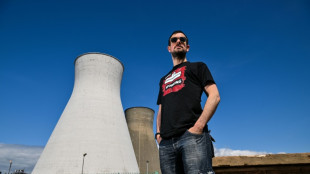
-
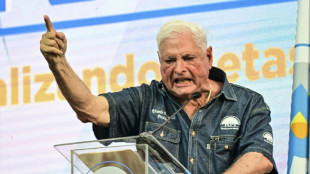 Convicted ex-Panama president Martinelli granted asylum in Colombia
Convicted ex-Panama president Martinelli granted asylum in Colombia
-
IPL chiefs in talks about restart following ceasefire: reports
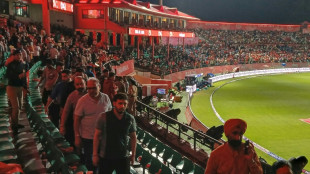
-
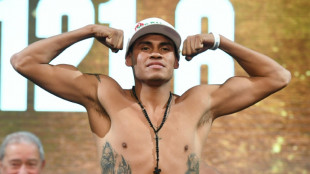 Navarrete beats Suarez on technical decision to keep title
Navarrete beats Suarez on technical decision to keep title
-
Scans clear Wallabies fly-half Lolesio of serious back injury
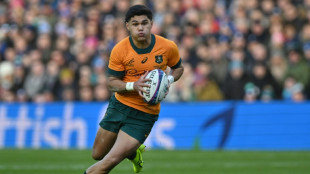
-
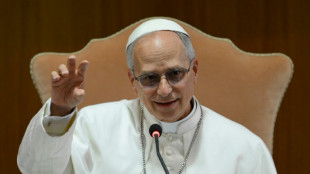 Leo XIV to address faithful with St Peter's prayer
Leo XIV to address faithful with St Peter's prayer
-
T-Wolves grab 2-1 NBA playoff series lead as Celtics get key win
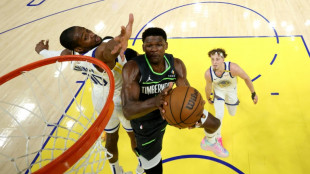
-
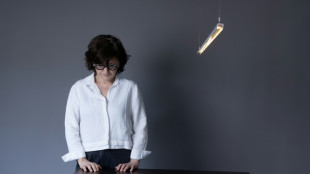 Gaza war casts shadow over Cannes film festival
Gaza war casts shadow over Cannes film festival
-
'Treasure hunt': tourists boost sales at Japan's Don Quijote stores
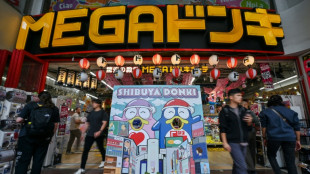
-
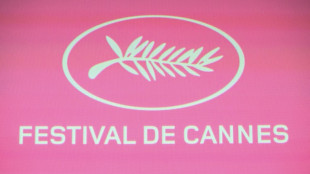 Cannes Festival: the films in competition
Cannes Festival: the films in competition
-
Cannes film festival: what to look out for
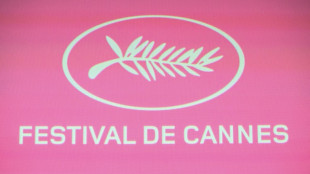
-
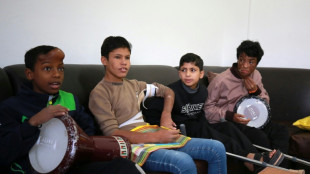 Jordan hospital treats war casualties from across Middle East
Jordan hospital treats war casualties from across Middle East
-
As Trump family's Gulf empire grows, rulers seek influence, arms, tech
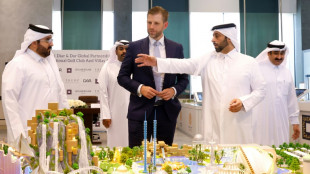
-
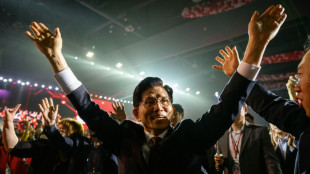 S. Korea conservatives choose presidential candidate after last-minute chaos
S. Korea conservatives choose presidential candidate after last-minute chaos
-
Trump hails 'total reset' in US-China trade relations as talks continue
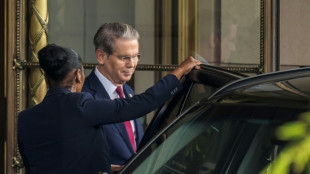
-
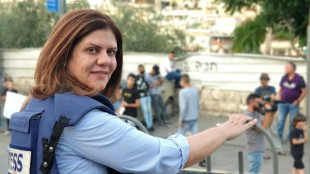 Film claims to name killer of slain journalist Shireen Abu Akleh
Film claims to name killer of slain journalist Shireen Abu Akleh
-
Under Trump pressure, Columbia University ends semester in turmoil
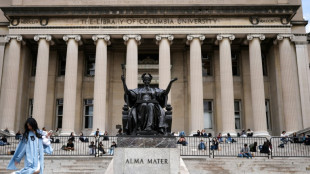
-
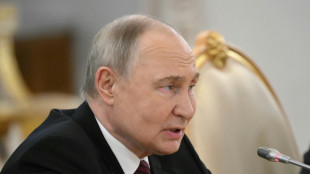 Putin proposes direct Ukraine talks but quiet on 30-day ceasefire
Putin proposes direct Ukraine talks but quiet on 30-day ceasefire
-
Trump hails US-China trade 'reset' after first day of talks
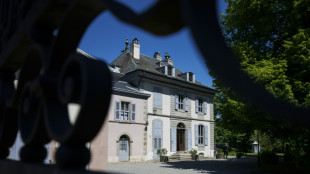
-
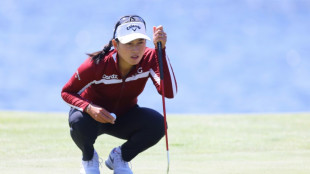 Jeeno leads Boutier by one at LPGA Americas Open
Jeeno leads Boutier by one at LPGA Americas Open
-
Lowry, Straka share lead at windy Truist
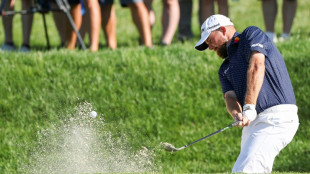
-
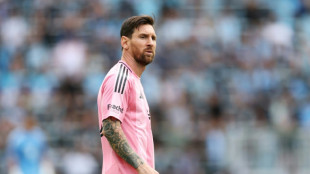 Messi suffers worst defeat in MLS as Miami fall again
Messi suffers worst defeat in MLS as Miami fall again
-
Celtics overwhelm Knicks to pull within 2-1 in NBA playoff series
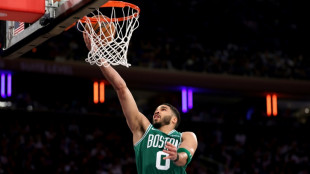
-
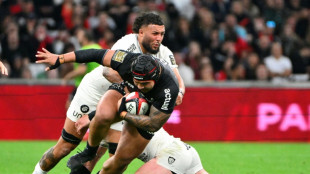 Toulouse crush Toulon to reach Top 14 semis as Castres pay tribute to Raisuqe
Toulouse crush Toulon to reach Top 14 semis as Castres pay tribute to Raisuqe
-
Marseille, Monaco clinch Champions League qualification from Ligue 1
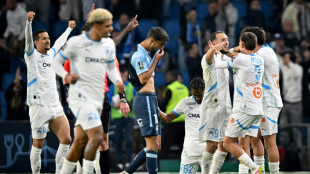
-
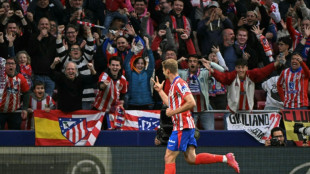 'One of those days': Atletico record-breaker Sorloth hits four
'One of those days': Atletico record-breaker Sorloth hits four
-
Toulouse's Ntamack suffers concussion in Top 14, Willemse nears exit
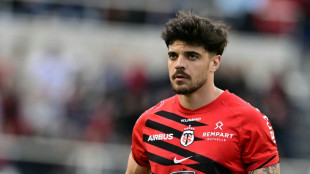
-
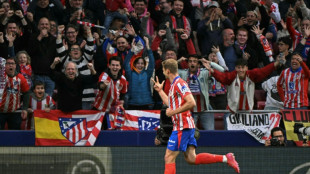 Record-breaker Sorloth hits four as Atletico smash Real Sociedad
Record-breaker Sorloth hits four as Atletico smash Real Sociedad
-
'Weight off my shoulders': Bayern's Kane toasts breakthrough title
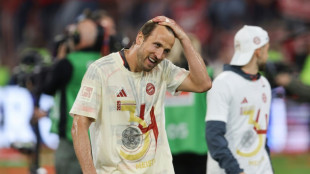
-
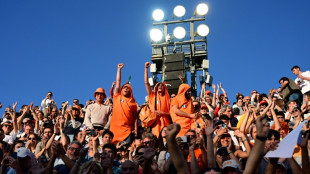 Sinner grateful for 'amazing' support on Italian Open return from doping ban
Sinner grateful for 'amazing' support on Italian Open return from doping ban
-
Hamburg return to Bundesliga after seven-year absence
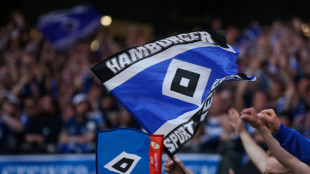
-
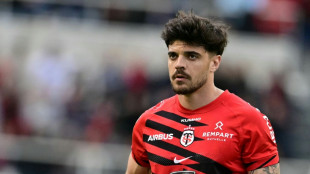 Toulouse's Ntamack suffers concussion in Top 14 clash
Toulouse's Ntamack suffers concussion in Top 14 clash
-
India, Pakistan reach ceasefire -- but trade claims of violations
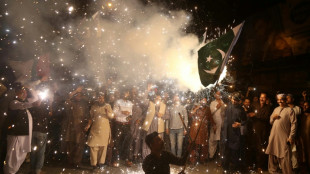
-
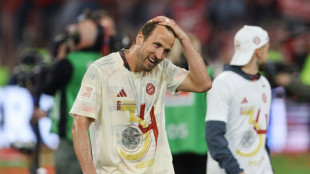 'Long time coming': Bayern's Kane toasts breakthrough title
'Long time coming': Bayern's Kane toasts breakthrough title
-
US, China conclude first day of trade talks in Geneva
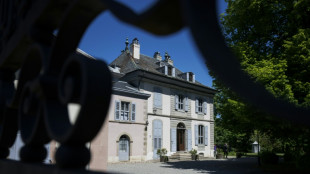
-
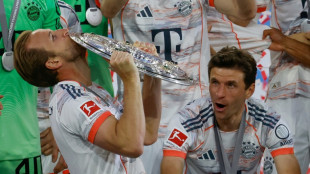 Kane tastes first title as champions Bayern bid farewell to Mueller
Kane tastes first title as champions Bayern bid farewell to Mueller
-
Benfica deny Sporting to take Portuguese title race to wire
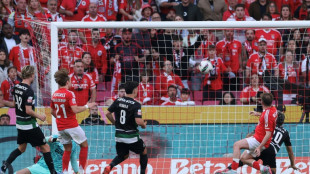
-
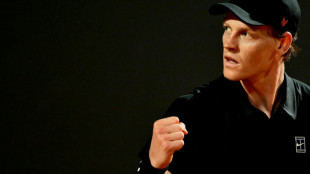 Sinner makes triumphant return from doping ban at Italian Open
Sinner makes triumphant return from doping ban at Italian Open
-
Sinner wins at Italian Open in first match since doping ban
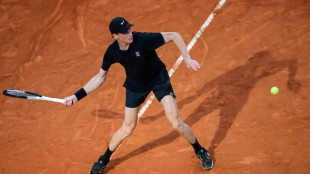
-
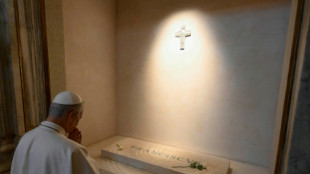 Leo XIV, new pope and 'humble servant of God', visits Francis's tomb
Leo XIV, new pope and 'humble servant of God', visits Francis's tomb
-
India claims Pakistan violated truce, says it is retaliating
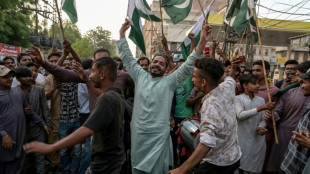
-
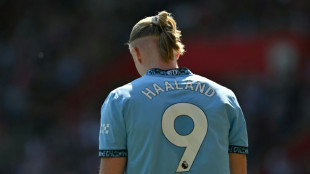 Champions League race hots up as Man City held, Villa win
Champions League race hots up as Man City held, Villa win
-
Kane tastes first title as champions Bayern see off Mueller
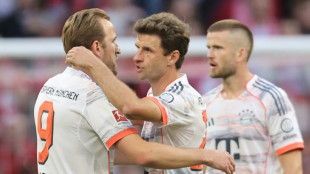
-
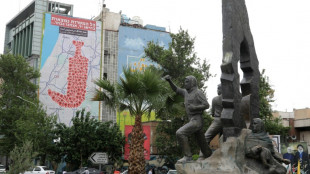 US envoy calls enrichment 'red line' ahead of new Iran talks
US envoy calls enrichment 'red line' ahead of new Iran talks
-
Hastoy lifts La Rochelle as Castres pay tribute to Raisuqe
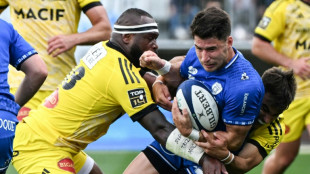
-
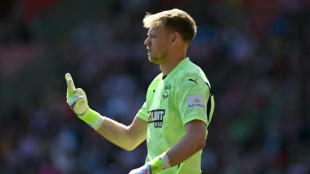 Southampton avoid Premier League 'worst-ever' tag with Man City draw
Southampton avoid Premier League 'worst-ever' tag with Man City draw
-
Injury forces Saints quarterback Carr to retire
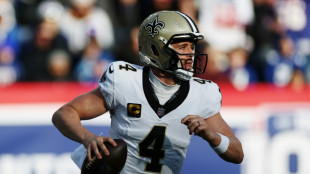

Russia attack conjures up fears of new Europe 'iron curtain'
Russia's attack on Ukraine could herald a Cold War revival in Europe with two blocs armed to the teeth pointing nuclear weapons at each other across an iron curtain, politicians and experts say.
Ukrainian President Volodymyr Zelensky's statement that Moscow's assault on his country was "the sound of a new iron curtain lowering" has resonated in Western halls of power where many had assumed that Europe's post-war division into hostile camps led by the US and Russia was consigned to the history books.
From Hitler's defeat in 1945 to the fall of the Berlin Wall in 1989, Europe was divided into two camps with the dividing line running through Germany.
The so-called iron curtain, a term coined by British wartime leader Winston Churchill, separated the western liberal, capitalist democracies from the communist countries in the east, each part of zones of influence that were mostly accepted by the other side.
- 'Shift borders' -
But after the collapse of the Soviet Union in 1991, many of Moscow's former satellites turned to the West, joining NATO and the European Union if they could -- like Poland and Romania -- or at least liberalising their economies and political systems, like Ukraine.
Former German chancellor Angela Merkel, who grew up in communist east Germany, warned that Russian President Vladimir Putin is on a quest to roll back that trend and re-establish Moscow's sphere of influence.
"Russia's war of aggression marks a profound turning point in European history after the end of the Cold War," Merkel said Friday.
Her successor, Olaf Scholz, echoed such concerns when he called the invasion of Ukraine "an attempt to forcibly shift borders within Europe".
US Secretary of State Antony Blinken accused Putin point-blank of wanting to "reconstitute the Soviet empire" or at least "reassert a sphere of influence".
French President Emmanuel Macron also seemed to be looking at the Russian offensive's long-term impact when he described the war as a "turning point in the history of Europe and our country" with "deep and lasting consequences for our lives".
Russia taking "Ukraine off the map of nations", as French Foreign Minister Jean-Yves Le Drian fears it will, would dramatically lengthen the border NATO countries share with Russia, with a big rise in potential flashpoints -- and fewer buffers.
Already the United States and other NATO members are sending reinforcements to the alliance's frontline.
Once Washington stations the promised 7,000 extra soldiers, the US will have 90,000 troops in total deployed in Europe.
Among European nations promising more efforts, France has said it would accelerate its troop deployment in Romania, while Italy is to send 3,400 soldiers to its most exposed NATO allies.
- 'All kinds of repercussions' -
Western experts have little doubt that victory in Ukraine would see Putin tighten his grip not just on Kyiv, but also on neighbouring Belarus, which has already served as a launch pad for Russia's attack.
"The war in Ukraine will have all kinds of repercussions on the line that runs from Baltic to the Black Sea," said Jean-Sylvestre Mongrenier at the Thomas More institute think tank.
Belarus would "become a satellite again", he told AFP, and Russian pressure would grow on the Baltic countries and Poland.
Scholz called on Germany's allies to prevent the conflict from spilling over into other countries "with everything at our disposal" and warned Putin not to underestimate NATO's determination to defend its members.
France meanwhile expressed concerns that Russian tanks may also roll into Moldova and Georgia, two other former Soviet republics where separatists declared unrecognised statelets.
As tensions rise, the nuclear arms threat -- a key ingredient of post-war Europe's Cold War order -- is also making a return.
Le Drian has reminded Putin that "the Atlantic alliance is also a nuclear alliance", while the Russian leader threatened retaliation "like you have never seen in history" for anyone interfering with the war in Ukraine -- which many understand to mean nuclear reprisal.
Both Russia and the US have thousands of nuclear warheads at their disposal, with France and Britain adding to the West's atomic capabilities.
Ukraine, which emerged from the Cold War with sizeable Soviet-era nuclear weapons stocks of its own, gave up its arsenal in the 1990s.
M.A.Colin--AMWN